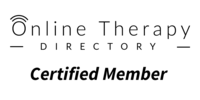What is Burnout?
Have you ever thought to yourself (or maybe even said out loud), “Ugh! I hate my job! I just want to quit!” I definitely have! I was working more than 40 hours every week, and the pay was terrible. I was exhausted, and I felt like I was never good enough for my supervisors, who always seemed to have critiques about the work I did.
It sucked. I hated it.
And worst of all, I was taking it out on everyone around me when I wasn’t at work. I was short-tempered with my husband, I was irritated with my parents, and I avoided hanging out with my friends because just the way they talked annoyed me.
Thankfully, one of my classes at school introduced the topic of “burnout”. I quickly noticed that it defined my problems to a T. When I addressed it as burnout, I felt better, more energized, and was able to appreciate the work I was doing helping people, whether or not other expressed appreciation for my work.
When it comes to burnout, there are three important questions to ask:
1. How do I know if I have burnout?
2. What do I do if I have burnout?
3. How do I prevent burnout?
How do I know if I have burnout?
Burnout is when we have become so physically and emotionally exhausted with our work that we just can’t keep going at it.
What does that even look like? For me, and for a lot of people, it looks like you hate your job. When you first started, you LOVED what you did. It was fulfilling and rewarding, but now, you dread getting up in the morning and going to work.
When at work, you feel powerless to control your environment. You feel overwhelmed with the workload and don’t know how you can keep it up. This can lead to frustration with coworkers, being easily irritated when asked to do a simple task (like sending an email), and counting down the minutes until you can leave.
And when you go home, you are EXHAUSTED. You have no energy to engage with the people you love, and little things irritate you that didn’t use to.
You feel miserable, to say the least. That is when you know you have burnout.
Now, burnout is often mistaken as Compassion Fatigue or Vicarious Trauma. Make sure you understand all of these to find out which one is more related to your issues. You can complete a questionnaire called ProQOL to determine which one applies to you the most.
What do I do if I have burnout?
First, you need to TAKE A BREAK. Burnout is a mental health issue, so take a mental health day. This is honestly the best way to respond to burnout. Most employers consider mental health days to be the equivalent of sick days, but always check with your HR before you call it a mental health day.
And when you take this break, make sure you check out from all things work-related. No emails. No phone calls. And NO TALKING ABOUT WORK. Trust me, just don’t do it.
Practice mindfulness. I know, this is one of those words we hear all too often in our society. But seriously, it works! Take some deep breaths, notice what is going on in your mind and body without judging it as bad or good. Be curious about yourself and how you are experiencing burnout in order to understand it better.
When we understand ourselves better, we are more empathetic and helpful when responding to our struggles with burnout.
If you continue to struggle with burnout, seek out professional help from a counselor. Find someone who specializes in stress management to get the help you need with burnout.
How do I prevent burnout?
When I was in college, the department I worked in had this approach to self-care, or “burnout prevention”. They called it “The Three G’s”: 1) Getaway Person, 2) Getaway Place, and 3) Get the funk out!
Have a Getaway Person. Find that one person, who is not involved in your work, that you can talk to about anything. We all need a friend who we can vent to that will listen and understand. But also, we need them to call us out on it when we are being ridiculous. And sometimes, talk with them and don’t bring up work, not even once, so we can have parts of our lives that aren’t infused with work-stress. This reduces your risk for burnout.
Have a Getaway Place. Find a place, not in your house, where you can go when you are feeling overwhelmed. A place where you won’t run into people from work, or people who will ask you how work is going. Go here, and just mentally check-out for an hour or two. And again, don't think about work the whole time. Focus on things other than work to prevent burnout.
And when those fail, get the funk out! Take a break and get away from the bubble you are living in. I’m not talking about a week-long vacation to the Bahamas (although take it when you can!), but sometimes just driving a few hours and spending the day on a different beach, or climbing a different mountain, is just what your brain needs to reset. This reset will help to prevent burnout.
After I took a few mental health days, drove out to the Sierra Foothills and enjoyed the views and food from a different city, I was much better at work. I was more patient, and I actually felt better about the work I did. It didn't immediately cure my burnout symptoms, but it made them easier to manage so I could work better.
Practice your Three G’s regularly, and get professional help when you need it, to keep burnout at bay. You got this!
Take care, friends!
Alisha Sweyd
Photo by Bruno Aguirre on Unsplash
